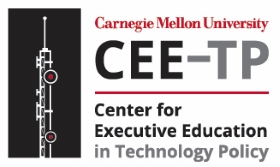Basics of Cryptocurrencies, Blockchains, and Applications
Instructor: Nicolas Christin, Professor at Carnegie Mellon University, jointly in Dept. of Engineering and Public Policy and in Computer Science.
This course provides an understanding of modern cryptocurrencies, ranging from their technological underpinnings to their applications (both licit and illicit), to the nascent legislation governing them. Tentatively, the program will be structured around half-day sections, as follows. We expect sections to be highly interactive, especially as the program progresses.
Section 1: Basics of cryptography and distributed systems for blockchain construction
The first session will introduce basic material on public key cryptography and digital signatures, as well as distributed consensus results. This will allow us to then formally define how blockchains can be constructed, from these building blocks. Time permitting, we will briefly cover the most common consensus options (proof-of-work, proof-of-stake, distributed proof-of-stake, federated byzantine agreement).
Section 2: Introduction to smart contracts
This second section will first discuss the most basic type of blockchain application: peer-to-peer payments (e.g., as implemented in Bitcoin). We will then look at the limitations and promises of peer-to-peer distributed systems of the kind, and expand into smart contracts (e.g., as implemented in Ethereum) that allow for far more complex primitives.
Section 3: Centralized and decentralized finance, trading
This third section will be a deeper dive into the main application of cryptocurrencies: trading. We will look at spot market currency trading (e.g., swapping Bitcoin for USD), before diving into derivative instruments (e.g., perpetual futures betting on whether a specific cryptocurrency is going to appreciate compared to a “stablecoin” pegged to a national currency). In the second half of the section we will look into “decentralized finance,” which builds on the aforementioned notion of smart contracts to provide primitives for lending, etc, without relying on centralized brokers.
Section 4: Applications: anonymous online marketplaces, anonymous currencies, NFTs
This fourth section will cover non-speculative/financial applications of blockchains. We will spend a significant amount of time discussing anonymous online “dark web” marketplaces, which have been one of the primary venues for using cryptocurrencies as a means of payment – mostly for illicit goods, and in particular narcotics. We will also discuss anonymous currencies (Monero, Zcash) briefly, and the conundrum that they present policy makers with. Last, we will introduce non-fungible tokens (NFTs) and other popular constructions based on smart contracts.
Section 5: Policy and regulatory discussions surrounding blockchains and cryptocurrencies
This fifth section is expected to be the most interactive. We will discuss several regulatory discussions surrounding blockchains in general and cryptocurrencies in particular. We will start from some of the clarifications (or lack thereof) that have been provided in the United States, and expand the discussion to other countries based on a conversation with the attendees. Topics of interest include: money transmitter status and regulations governing exchanges; whether tokens are securities; investor protection (or lack thereof).
Audience and objectives
- This course is intended for people who would benefit from a basic understanding of the security and privacy issues of cryptocurrencies and related technologies; this includes law enforcement agents, financial and banking regulators, among others.
- Upon completing the course, participants will be able to make informed decisions and ask important questions about the cryptocurrency design, implementation, and use.
- No prior knowledge of technology is required, but people with technical knowledge are welcome, as knowledge of college-level math, engineering or programming would enhance a participant's understanding of some portions of the course.
